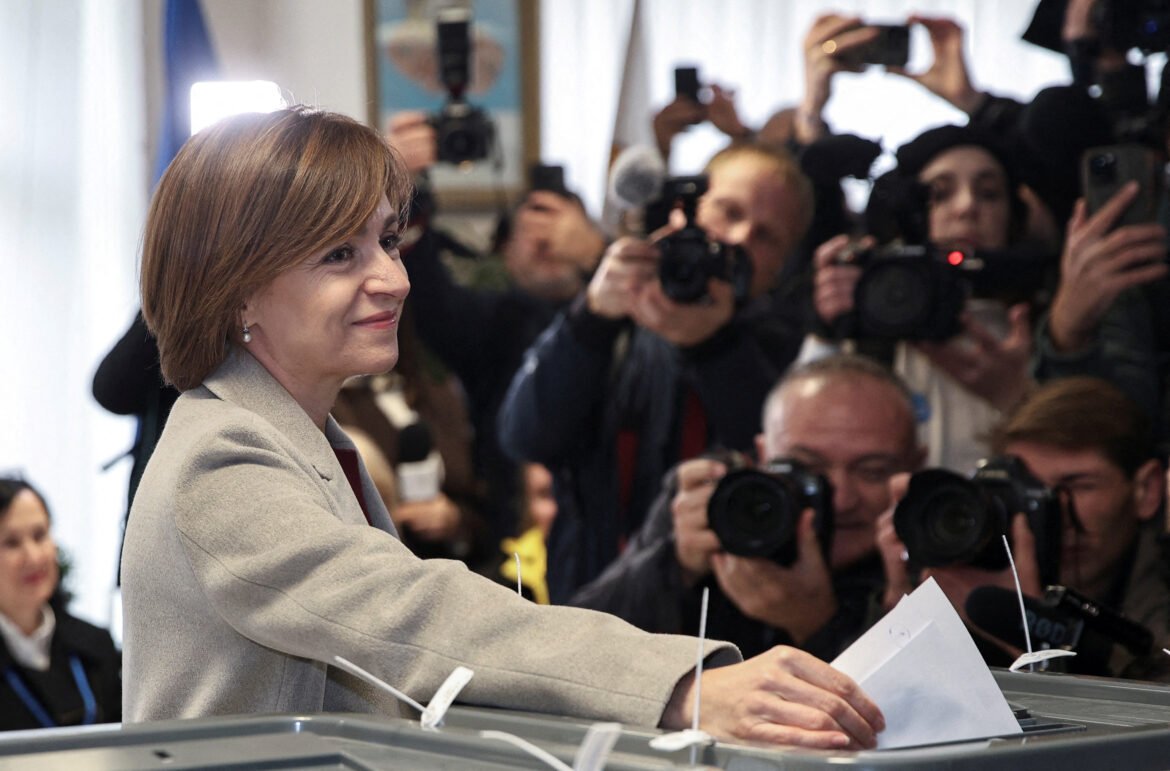Moldovans have made a firm decision with their votes to the pro-EU constitutional changes, with the nation narrowly supporting constitutional amendments that would commit the country to European Union membership. The official results from the referendum show 50.31% voting “Yes,” while 49.69% opposed the changes, reflecting a highly divided electorate. The referendum outcome, which is non-binding, nonetheless signifies a strong desire for closer ties with the EU, although it highlights the political and social divisions within Moldova.
A Narrow Victory for Pro-EU Changes
Moldovans have made a firm decision with their votes to the pro-EU constitutional changes, but the result came down to a razor-thin margin. The pro-EU camp managed to secure just over 50% of the vote, signaling that while many Moldovans favor deeper integration with the European Union, a significant portion of the population remains skeptical or favors closer ties with Russia. With over 99% of votes counted, the final tally showed a difference of less than 1%, illustrating the country’s split on its future direction.
The Moldovan diaspora, known for its strong pro-European sentiment, played a key role in the outcome. Votes from abroad leaned heavily in favor of the pro-EU changes, helping to push the “Yes” side over the line. However, the close nature of the vote has raised concerns about the future stability of the decision and whether the country can fully unite behind the goal of EU membership.
Claims of Foreign Interference
As Moldovans have made a firm decision with their votes to the pro-EU constitutional changes, accusations of foreign interference have marred the referendum. Pro-EU President Maia Sandu denounced what she described as “foreign forces” influencing the vote, specifically pointing to Russia. She accused Moscow of financing efforts to sway the outcome against the EU, claiming that hundreds of thousands of votes had been bought. Russia, through Kremlin spokesman Dmitry Peskov, denied these allegations and demanded evidence to support the claims.
The involvement of Ilan Shor, a pro-Russian businessman living in exile in Russia, further complicated the political landscape. Shor had openly called for Moldovans to vote “No” in the referendum, and his alleged financial influence has fueled suspicions of outside interference. Despite these controversies, the “Yes” vote narrowly prevailed, indicating that Moldovans have made a firm decision with their votes to the pro-EU constitutional changes, though the integrity of the process remains a topic of debate.
Moldova’s Future in the EU
The referendum result underscores the deep divisions within Moldova as the country balances between European integration and its historical ties to Russia. Moldovans have made a firm decision with their votes to the pro-EU constitutional changes, but the road ahead is uncertain. The constitutional change is designed to make Moldova’s EU path irreversible, but the vote being non-binding means the country will continue navigating complex political dynamics before officially joining the EU.
President Sandu, a strong advocate for EU membership, now faces the challenge of leading a country where nearly half of the population remains opposed or ambivalent about the European project. Moldova is already in talks with the EU on accession, but the referendum was intended to solidify the nation’s commitment. With the narrow victory, there is concern that the process could face obstacles, particularly if the political opposition gains strength in the upcoming presidential election.
Broader Political Context
Alongside the referendum, Moldova held a presidential election that saw President Sandu secure 41% of the vote, significantly lower than expected. Her pro-Russian rival, Aleksandr Stoianoglo, won 27%, forcing a second-round runoff in November. The close presidential race reflects the divided nature of Moldovan society, where Moldovans have made a firm decision with their votes to the pro-EU constitutional changes, but pro-Russian sentiments remain strong, particularly in rural areas and the breakaway region of Transnistria.
Stoianoglo’s unexpected performance has energized the opposition, and if the other candidates unite behind him in the runoff, President Sandu could face a tough battle to retain power. The referendum result, while a win for the pro-EU camp, has not fully settled the debate over Moldova’s future, and the upcoming election will be critical in determining the country’s political direction.
Conclusion
Moldovans have made a firm decision with their votes to the pro-EU constitutional changes, but the razor-thin margin of victory reveals a nation divided on its geopolitical future. The pro-EU referendum result is a significant step towards European integration, but claims of foreign interference and the close presidential election suggest that Moldova’s path to the EU may be fraught with challenges. As the country moves forward, the battle between pro-European and pro-Russian forces will continue to shape its political landscape, making the coming months crucial for Moldova’s future.
Stay connected to know more on arcnews.online for global news like Moldovans Have Made a Firm Decision With Their Votes to the Pro-EU Constitutional Changes. For videos updates visit our YouTube. Do subscribe to Arcnews to get latest updates directly in your mail box.
Have A Great Day.


